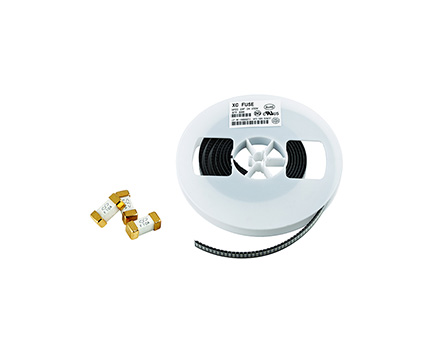
Choose Fuse Type
Choose Standard [UL, IEC...]
Choose Voltage Rating [AC or DC]
Calculate Rated Current
Choose Interrupting Rating [Breaking Capacity]
Current Derating
Advisor In rush Characteristic ² T]
Consultant Pulse Factor [Fp]
1、 Choose Fuse Type
The first step in selecting a fuse is to determine the type and size required. Common structures and sizes include the following:
1. Tubular type: glass or ceramic tube body, with a general size of 3.6x10mm 5x15mm 5x20 6.3x32mm;
2. Plastic shell type: PA66 shell, small in size, woven with machine insertion, generally 8.5x8mm 8.5x7.6mm in size;
3. Epoxy resin type: ceramic tube body, surface sealing resin, micro type, woven machine insert, size: 3x7mm;
4. Surface mount: suitable for high-density circuit boards, with dimensions of 0402 0603 1206 6125 1032;
5. Automotive fuses: generally used in conjunction with terminals or boxes, specifically for use in automotive or low-voltage, high current systems;
2、 Choose Standard
UL248-1/UL248-14 US UL Standard WeChat Screenshot_ 20220416101559.png
Applicable countries: United States, Canada
Application label: UL or UR
IEC60127-2, Table 1/2/3/4/5/6 International Electrotechnical Commission standards
Applicable countries: Some countries in Europe and Asia
Application labels: VDE, SEMKO, CCC, FIMKO, TUV, etc., all approved and executed by relevant national certification bodies
Read recommendations:
heater for bedroom with thermostat
surface mount fuse manufacturer
What is a fuse clip? After reading it, I understand.blade fuse colours